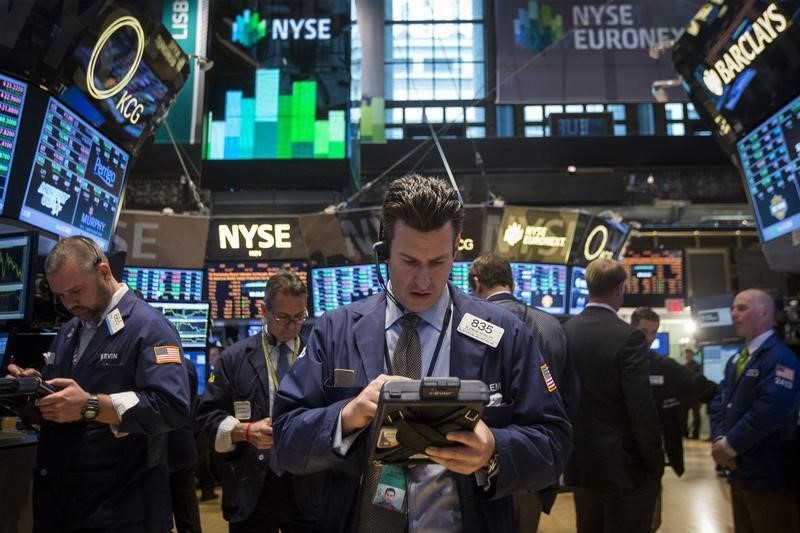(Updates through mid-day trading)
By David Randall
NEW YORK, Dec 20 (Reuters) - World equity markets continued a week-long slide on Thursday, one day after the U.S. Federal Reserve indicated it was set on its interest rate-hiking path next year despite signs that global economic growth is stuttering.
The Fed's move on Wednesday to largely adhere to its plan for additional rate hikes over the next two years raised worries for market participants from Asia to Europe, as major indexes fell to their lowest in two years and investors flocked to the relative safety of government debt.
European shares fell nearly 1.5 percent .STOXX , with benchmark indexes in Germany DAX. , Britain .FTSE and France .FCHI all hitting their lowest since late 2016. Indexes in Japan and South Korea fell into a bear market, defined as a 20 percent decline from recent highs, joining benchmark indexes in Shanghai and Hong Kong.
MSCI's global equity index fell to its lowest since May 2017, shedding nearly 1.3 percent .MIWD00000PUS as it headed for a fifth straight day of losses.
"All people are talking about today is the aftermath of the Fed hike. The fact that the Fed just killed the notion that they are here to backstop the market," said Michael Antonelli, managing director, institutional sales trading at Robert W. Baird in Milwaukee.
On Wall Street, the Dow Jones Industrial Average .DJI fell 387.43 points, or 1.66 percent, to 22,936.23, the S&P 500 .SPX lost 33.85 points, or 1.35 percent, to 2,473.11 and the Nasdaq Composite .IXIC dropped 106.94 points, or 1.61 percent, to 6,529.88.
The Fed on Wednesday stuck by a plan to keep withdrawing support from an economy it considers robust, and hiked key overnight lending rates as expected by 0.25 percentage point. said "some further gradual" rate hikes would be needed in the year ahead, with policymakers projecting two rises on average next year instead of the three predicted in September.
Although largely in line with expectations, that tweak did little to soothe investor concerns over slowing world growth, U.S. trade tensions with China, and tightening monetary conditions for companies in the world's biggest economy.
"It appears that risky asset markets wanted a stronger 'put' from the Fed given the ongoing recession obsession taking over the market sentiment," said Salman Ahmed, global investment strategist at Lombard Odier Investment Managers.
The equity losses added to the worst year for world stocks since the 2008 global financial crisis, with MSCI's 47-country world stocks index .MIWD00000PUS down 10 percent. $7 trillion has been wiped off global stock markets this year, with emerging markets trampled flat by a charging dollar. angst in equity markets pushed investors towards the safety of government bonds.
German 10-year government bond yields, the euro zone benchmark, fell to their lowest in nearly seven months. Other high grade euro zone bond yields also fell. 10-year U.S. notes US10YT=RR last rose 1/32 in price to yield 2.7726 percent, from 2.776 percent late on Wednesday.
Oil prices, meanwhile, slumped as worries about oversupply and worldwide demand for energy pushed prices back towards their lowest in over a year. U.S. crude fell more than 4 percent to $46.14 per barrel, while Brent fell 4.1 percent to $54.87 per barrel.
"Growth concerns continue to percolate in the background, and you can see that with oil prices coming off," said Alvin Tan, an foreign exchange strategist at Societe Generale (PA:SOGN).
The dollar index .DXY fell 0.7 percent, with the euro EUR= up 0.74 percent to $1.1459.
